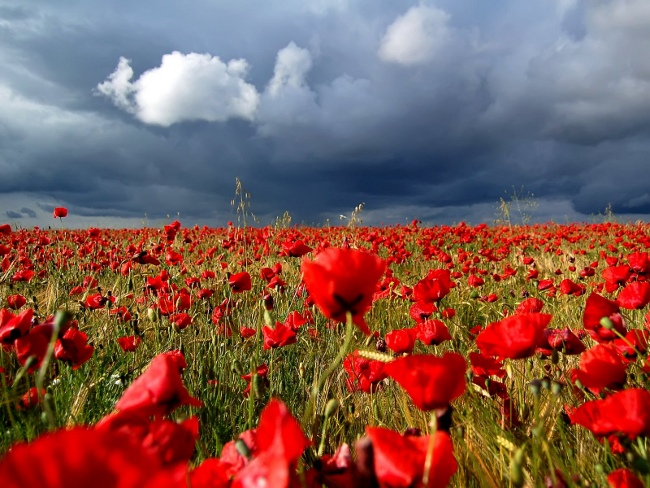At Home
Remembering In Flanders Fields
Member of Parliament Pierre Poilievre attended a ceremony commemorating the 100th anniversary of the Second Battle of Ypres and the poem In Flanders Fields this past Sunday.
During the ceremony held in Ottawa on May 3, Poilievre joined in the unveiling of a statue to mark the 100th anniversary of the poem. He attended the ceremony on behalf of Veterans Affairs Minister Erin O’Toole,
“Today’s ceremony was a great opportunity to mark the 100th anniversary of the Second Battle of Ypres and to pay tribute to John McCrae’s, In Flanders Fields. His iconic poem truly honours the service of all Canada’s veterans and preserves their legacy for future generations. Canadians will now have the opportunity to enjoy this statue and honour John McCrae’s contribution to our shared history,” said Poilievre.
In Flander’s Fields was written during the Second Battle of Ypres by Lieutenant-Colonel John McCrae, a Canadian doctor who served in the First World War. McCrae’s poem has come to be immortalized around the world as a symbol of service and sacrifice.
The Royal Regiment of Canadian Artillery received $31,351, through Veterans Affairs Canada’s Community Engagement Partnership Fund, to help with the costs of the unveiling ceremony for the John McCrae Statue.
At age 14 John McCrae joined the Highfield Cadet Corps and, at 17, he enlisted in the local militia artillery unit commanded by his father, Lieutenant-Colonel David McCrae.
He was commissioned as a second lieutenant in 1893 and in 1899, he volunteered to fight in the South African War. In September 1914, John McCrae again volunteered to serve, this time for what is now known as the First World War.
John McCrae was a major at the time of the Second Battle of Ypres. Some of the heaviest fighting of the First World War took place in the trenches near Ypres, Belgium.
It was at Ypres the Germans first used deadly chlorine gas against Allied troops. Despite the debilitating effects of the gas, Canadian soldiers fought relentlessly and held the line.
John McCrae wrote In Flanders Fields on May 3, 1915, during the Second Battle of Ypres. He was inspired to write the poem following the death of his close friend and former student, who was killed and buried in a makeshift grave amid poppies that were already beginning to bloom.
His poignant poem helped bring home the realities of war to the world. As a result, the poppy went on to become an important symbol of remembrance in many countries, honouring those who lost their lives in battle.
Minister O’Toole issued a statement acknowledging that during the Second Battle of Ypres, under extremely difficult conditions, Canadians made an incredible mark on the world stage as a courageous military force.
Although the stand at Ypres was successful, it came at great cost. In the course of 48 hours, more than 2,000 made the ultimate sacrifice, and 4,000 were wounded.
In Flanders Fields
In Flanders fields the poppies blow
Between the crosses, row on row,
That mark our place; and in the sky
The larks, still bravely singing, fly
Scarce heard amid the guns below.
We are the Dead. Short days ago
We lived, felt dawn, saw sunset glow,
Loved and were loved, and now we lie
In Flanders fields.
Take up our quarrel with the foe:
To you from failing hands we throw
The torch; be yours to hold it high.
If ye break faith with us who die
We shall not sleep, though poppies grow
In Flanders fields.
John McRae 1915










